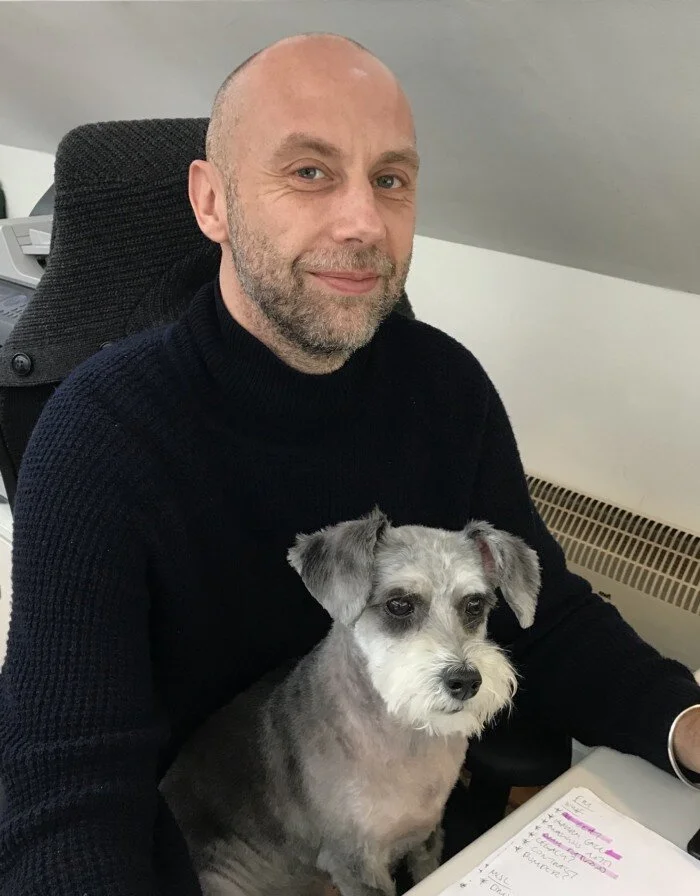Diversity and Inclusion in our workplace — beyond lip service
In a week celebrating Diversity and Inclusion, Tim Corbett-Winder explains how Fundraising Agency DTV is seeking to embed D&I awareness and practice across its international business.
At DTV we are immersed in a world of values-driven causes: across 30+ countries virtually all of our clients are not-for-profit organisations. Many of them have their own D&I strategies. Issues such as equality and avoiding discrimination can feel like part of the DNA of our sector, but we must not be complacent.
In the beginning
We started our D&I programme not simply because we thought it was a good thing to do, but also in the belief that if we do this well, then we can make DTV an even better place to work. We really brought greater intent to our work after an initial training course on unconscious bias.
Building on that, we developed a company-wide D&I survey to help us to begin to identify the knowledge gaps at DTV, staff members’ individual negative or positive experiences, and what we needed to work on.
It covered things like staff understanding of diversity and inclusion, questions around how seriously staff felt DTV takes D&I, and also asked questions around positive or negative experiences around key areas like recruitment, social inclusion, leadership, race, gender, belief, age and sexuality — and lots more.
It’s really important to approach this seriously and with the intention of listening and being open to change. It is not and must never be a box ticking exercise.
Ensuring budget and buy-in
You need time and budget. We’ve given a lot of development time to build our understanding and involve everyone, and we’ve brought in expert external training support. People can tell it’s being taken seriously and is supported 100% by our board. And we’ve been clear about our primary objective: to make DTV an even better place to work.
We do have a diverse and values-driven client base, who in turn have diverse and values-driven donors that respond to the work we produce — so it’s good for us to be more in tune with them.
We also know that diverse perspectives, diverse ideas and solutions, typically come from a team with a diverse background — this makes our work better and more appealing.
It takes people and time to create support and buy-in — and I do feel like we have that now. While, like many in the sector, we have strong personal values, we are still developing a more profound understanding of D&I. We know we will make mistakes along the way.
Constant review and revision
The survey I mentioned gave us a basis to understand what we’re doing well and where we can improve. Areas of focus over the next year include recruitment, leadership, social inclusion, mental health, flexible working and communicating D&I issues. And, of course, we want everyone to feel that someone like them can succeed and become a leader at DTV.
There’s lots we want to do… to become better at supporting mental health issues at work; to manage more people working from home; to support staff with children and other out-of-work responsibilities; to attract new staff from diverse groups; to be more inclusive in our social events.
There will also be more focus on getting a greater understanding of people who have a different gender, sexuality, religion or race than your own — so there’s more empathy across the business about the full range of day-to-day experiences in life. For me, it’s that side of things that is really important — to open people’s eyes to how life can be for other people.
The practicalities of the process
We have created sub-groups of DTV people to help with each of the key diversity focus areas over the next year (recruitment, leadership, engagement etc…), so that we can make this work together.
To take one example, recruitment of new staff was an early priority. First, we have a formal objective: “To prevent unconscious bias in the recruitment process and to reach all potential candidates outside of our usual ‘pool’.”
We know this won’t happen just through a good intention! So we have assessed lots of ways to make it happen, and we will initially be testing four things: blind CVs; a more diverse interview panel; a web crawler that picks up CVs that might normally not reach us; and using a specialist ‘diverse’ recruitment agency
As I said, recruitment is just one example among many. The main thing is that it has to change us in all some way. We know we can’t do absolutely everything, but we’re on the right path with planning a year-round programme that includes external speakers, events, and training.
Keeping a keen eye on D&I
We want to make DTV an even better place to work. We want it to be clear that we value and understand differences and encourages an inclusive work culture, where people from any background, however they identify are treated fairly and can progress.
I’m super happy to be working on it — it’s not something I have all the answers to but it’s such a positive thing to be doing at work, I hope it help makes positive change.
Bio
Tim is a Senior Producer at DTV Group where he works with a range of not-for-profit clients. He heads up the agency’s work on Diversity and Inclusion. DTV has offices in the UK, Germany, India, Hong Kong, Korea, and Sydney, and creates fundraising and social change campaigns for great causes in 30+ countries.

